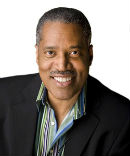Lawyers representing Jussie Smollett, the actor who apparently lied to the Chicago Police Department about an alleged hate crime, called him a “man of impeccable character and integrity.”
Before Smollett’s tale of being of a victim of an attack by two men yelling pro-Trump slogans fell apart, Rep. Maxine Waters (D-CA), one of many who vouched for his character, blamed President Donald Trump for creating an atmosphere that encouraged such an attack. Waters said: “I know Jussie. I love him. His family’s a friend of mine. I know his sisters, I met his mom, and I called already to Jazz, one of the sisters, to talk to her about what’s happening, what’s going on.”
This “man of impeccable character and integrity” appeared on ABC’s “Good Morning America” two weeks ago, where an oh-so-sympathetic Robin Roberts interviewed him. Smollett, at times tearing up, described the pain of being attacked by racist Trump-supporting homophobes. But he also described his second painful experience, that of being doubted. “It feels like if I had said it was a Muslim or a Mexican or someone black,” Smollett told Roberts, “I feel like the doubters would’ve supported me a lot more, and that says a lot about the place that we are in our country right now.”
Smollett’s alleged hoax raised many interesting questions, one of which is this: How often do people lie to or about the police?
In 2012 in the city of Rialto, California, with a population of approximately 100,000, cops were randomly assigned body cameras based on their shifts. Over the next year, a follow-up analysis showed use-of-force incidents on the shifts with body cams were down 59 percent compared to those without cameras. But something else rather extraordinary also happened. Complaints against all Rialto police officers — with or without body cams — were down 87.5 percent from the prior year.
Why? It was not because officers changed their behavior. They applied the same training they used before body cams. It was the civilians who changed their behavior. It turned out that when civilians knew they were being recorded, they behaved better and stopped making false accusations. Civilians — aware that they might be taped — became less confrontational, followed officers’ instructions more readily and did not engage in the kind of resistant behavior as before random cops were required to use body cams. As a result, officers did not have to use the kind of force previously needed.
A 20-year veteran Rialto police officer told me: “Newspapers make you think that the cameras made us change what we did and how we went about our business ‘because the cops were being watched.’ That’s not true. The cameras made the civilians stop lying about us, reduced the mouthing off and the kind of resistance we used to see.”
The city of Rialto is not alone in experiencing an almost 90 percent drop in officer complaints as a result of body cams.
A 2016 Cambridge University study of five police stations in the U.K. (in England and Northern Ireland) and two in the U.S. (including Rialto) found the same result. Complaints against the police fell 93 percent when some officers were randomly assigned body cams. Jayne Sykes of the West Yorkshire Police Department said: “Anecdotally, in terms of bringing offenders to justice, our Crown Prosecution Service have said to us on numerous occasions that the video footage has tipped the ballot in favor of prosecution, whereas without it, they may not have been able to prosecute. And also, again anecdotally, we’re getting more early guilty plea from suspects which saves the victim the trauma of having to go to court and give evidence.”
Barack Ariel from Cambridge’s Institute of Criminology, one of the authors of Cambridge’s study, says that in the original Rialto study, the drop in complaints against police translated into a savings of four dollars in complaint litigation for every one dollar spent on the installation of body cams.
In the last two years, there have been several hate crimes later exposed as hoaxes. Nikki Joly, a Michigan LGBT activist lost his house in a 2017 fire, which killed his two dogs and three cats inside the home. Two days later, the activist exhorted his followers “to be angry, be very angry.” The police quickly determined it was arson, while the FBI investigated it as a hate crime. As a result of his “plight,” the activist, called “citizen of the year” by a local newspaper, received $58,000 in donations. But a year later, the police charged the activist with setting the fire.
When Smollett’s hate crime claim imploded, Roberts called Smollett’s story “a setback for race relations.” About the assertion made by many blacks that cops engage in “systemic” or “structural” or “institutional” racism, one must ask this question: What impact do false accusations against cops play in pushing the “cops are out to get us” narrative?
COPYRIGHT 2019 LAURENCE A. ELDER
DISTRIBUTED BY CREATORS.COM
 Larry Elder is a bestselling author and radio talk-show host. To find out more about Larry Elder, or become an “Elderado,” visit www.LarryElder.com. Follow Larry on Twitter @larryelder.
Larry Elder is a bestselling author and radio talk-show host. To find out more about Larry Elder, or become an “Elderado,” visit www.LarryElder.com. Follow Larry on Twitter @larryelder.
The views expressed in opinion articles are solely those of the author and are not necessarily either shared or endorsed by Black Community News.
Do you like this post? Sign up for our daily newsletter to see more!
 CURE News and Clergy Blog News and Commentary for Christians
CURE News and Clergy Blog News and Commentary for Christians




Police body cameras can play a two-fold role in reining in bad cops and exposing any lies about police excessive force. They’re worth the money.